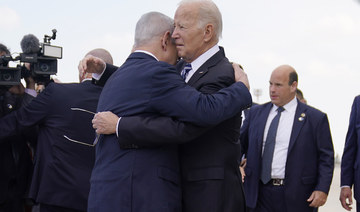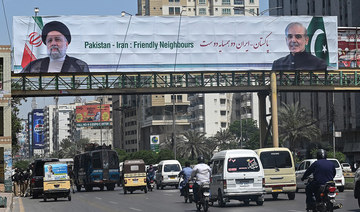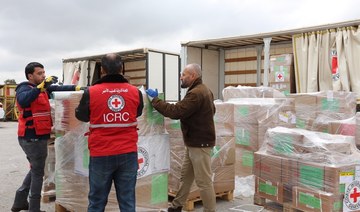Egyptians will turn out “in their millions” to protest any move by Israel to force Gaza residents to cross into Sinai, President Abdel Fattah El-Sisi said on Wednesday.
He warned that such a move would turn the peninsula into a base to stage attacks on Israel.
Cairo on Wednesday declared three days of national mourning over the victims of the Al-Ahli Baptist Hospital bombing in the besieged Gaza Strip.
A day earlier, an Israeli airstrike on the hospital, crammed with patients and displaced people, killed about 500 Palestinians, said Gaza health authorities.
El-Sisi declared “three days of national mourning in Egypt for the innocent victims of the criminal bombing of Al-Ahli Baptist Hospital in the Gaza Strip, and for all martyrs among the brotherly Palestinian people,” said an official statement.
During his meeting with German Chancellor Olaf Scholz on Wednesday at Ittihadia Palace in Cairo, El-Sisi exchanged views on the military escalation in the Gaza Strip, the regional situation and the potentially serious repercussions of the conflict on security.
At a later press conference, El-Sisi offered his condolences to the victims “of the brutal bombing.”
He added: “I affirm Egypt’s condemnation of all military actions that target civilians in flagrant violation of all international laws. I stress the rejection of all deliberate practices against civilians, and I call on the international community to intervene immediately to stop them.”
El-Sisi said that his discussions with Scholz “covered, in detail, the military confrontations between the Palestinians and Israelis, and the military escalation in the Gaza Strip that has claimed the lives of thousands of civilians from both sides.”
He warned that “the continuation of the current military operations will result in security and humanitarian repercussions that could spiral out of control.”
The conflict might be expanded “in the absence of concerted efforts by all regional and international parties to reach an immediate cessation to the current escalation.
“What is happening now in Gaza is an attempt to force civilian residents to take refuge and migrate to Egypt, which should not be accepted.
“Egypt rejects any attempt to resolve the Palestinian issue by military means or through the forced displacement of Palestinians from their land, which would come at the expense of the countries of the region.”
El-Sisi added that if Gaza’s residents are displaced to Sinai, Egyptian people would “go out and protest in their millions ... if called upon to do so.”
He expressed Cairo’s deep concern over the deteriorating humanitarian situation in the Gaza Strip, calling for the opening of humanitarian and aid corridors to the enclave.
The Egyptian president added that if conditions ease, Egypt will receive and redirect humanitarian assistance to Gaza through the Rafah land crossing.
“Egypt did not close the Rafah crossing since the outbreak of the crisis. However, the developments on the ground and the repeated Israeli strikes on the Palestinian side of the crossing obstructed its operation,” he said.
El-Sisi called for comprehensive resolution to the Palestinian cause based on independent statehood along June 1967 borders with East Jerusalem as a capital.
Scholz called for an investigation into the hospital bombing, highlighting the need to protect civilians and ensure their safety.



























